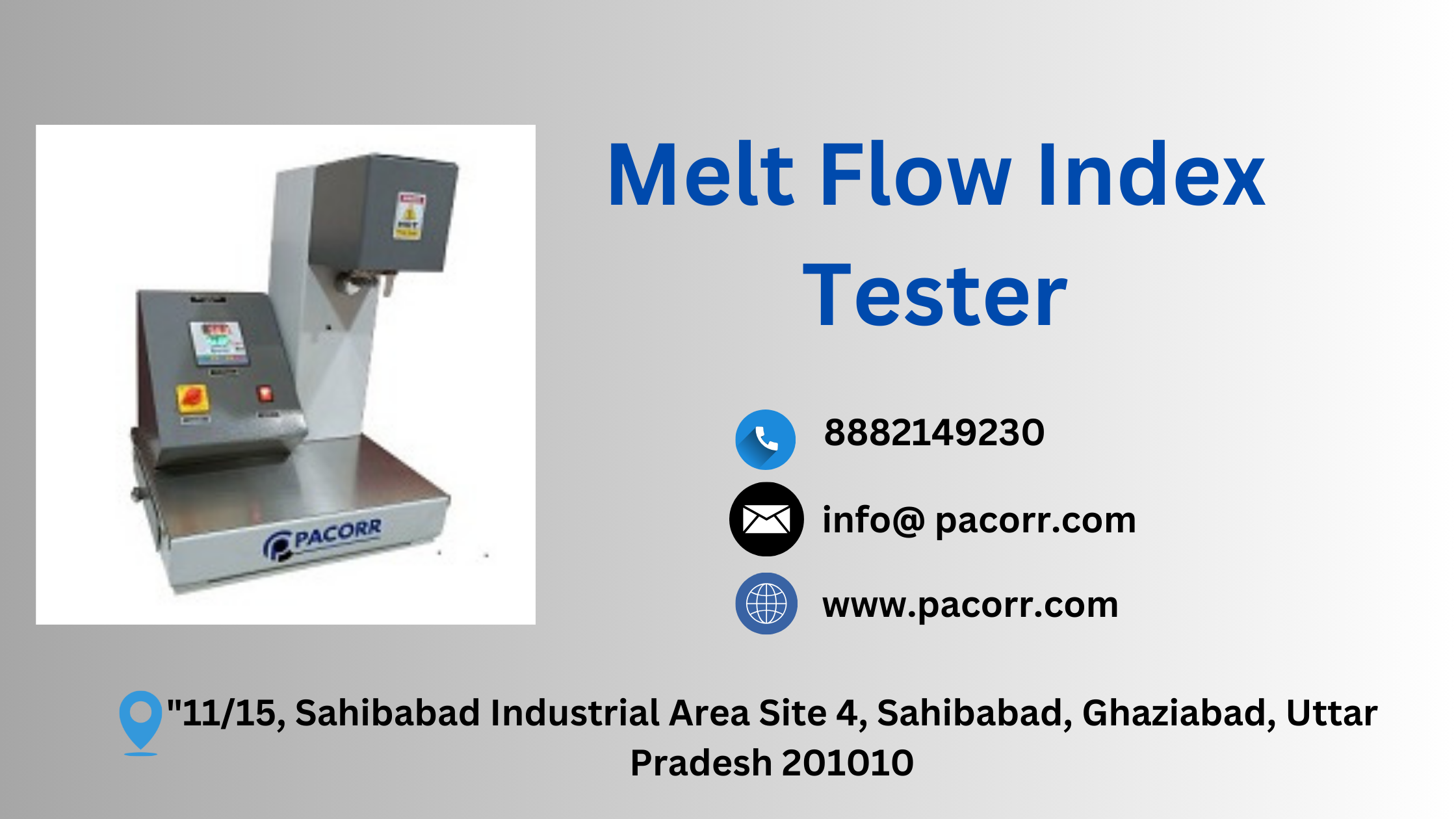Understanding the Melt Flow Index Tester: Ensuring Quality in Polymer Production
Introduction to Melt Flow Index Tester
In the realm of polymer manufacturing, the Melt Flow Index (MFI) tester stands as a cornerstone for quality control. This essential instrument evaluates the flow characteristics of thermoplastic polymers, providing vital data that informs both the production process and the quality of the final product. By measuring the rate at which a polymer melts and flows under specific conditions, the MFI tester helps manufacturers ensure consistency, optimize production parameters, and meet stringent industry standards.
Importance of Melt Flow Index Testing
Melt Flow Index testing plays a crucial role in the polymer industry for several reasons:
- Quality Assurance: By determining the melt flow rate, manufacturers can verify that their materials meet the required specifications and standards, ensuring high-quality end products.
- Process Optimization: Understanding the flow characteristics of polymers allows for fine-tuning of the production process, leading to improved efficiency and reduced waste.
- Material Selection: MFI testing aids in selecting the appropriate materials for specific applications, ensuring that the chosen polymers will perform as expected under the intended conditions.
- Consistency: Regular MFI testing ensures that the polymer batches produced are consistent in quality, which is critical for maintaining the performance and reliability of the final products.
How the Melt Flow Index Tester Works
The MFI tester operates by extruding a polymer sample through a die under controlled temperature and pressure. The following steps outline the testing process:
- Sample Preparation: A specific amount of polymer is loaded into the MFI tester's barrel, which is heated to a predetermined temperature.
- Preheating: The polymer sample is allowed to preheat for a set period, ensuring it reaches a uniform temperature.
- Extrusion: A specified weight is applied to the molten polymer, forcing it through a capillary die.
- Measurement: The amount of polymer extruded over a given time is measured and recorded. This value, typically expressed in grams per 10 minutes, is the melt flow rate.
Key Features of Pacorr’s Melt Flow Index Tester
Pacorr’s Melt Flow Index Tester is designed with advanced features to ensure accurate and reliable testing:
- Precision Heating: The instrument features a high-precision temperature control system, ensuring uniform heating and accurate test results.
- Automatic Timing: Automated timing mechanisms enhance repeatability and reduce operator error, providing consistent and reliable measurements.
- Ease of Use: User-friendly interfaces and intuitive controls make the MFI tester easy to operate, even for those new to polymer testing.
- Robust Construction: Built with durable materials, Pacorr’s MFI tester is designed to withstand the rigors of industrial use, ensuring longevity and dependable performance.
Applications of Melt Flow Index Testing
Melt Flow Index testing is indispensable in various applications within the polymer industry:
- Material Development: Researchers and developers use MFI testing to characterize new polymer formulations and optimize their properties.
- Quality Control: Manufacturers implement MFI testing in their quality control processes to ensure that each batch of polymer meets the necessary standards.
- Regulatory Compliance: Many industries have specific regulations regarding polymer properties. MFI testing helps manufacturers comply with these standards, avoiding costly penalties and product recalls.
- Product Development: By understanding the flow properties of polymers, product developers can design materials that meet specific performance criteria, leading to better and more innovative products.
Conclusion
The Melt Flow Index Tester is an indispensable tool in the polymer industry, providing crucial data that informs production processes, ensures quality, and drives innovation. Pacorr’s advanced MFI tester, with its precision, reliability, and user-friendly features, stands out as a top choice for manufacturers seeking to maintain high standards and optimize their operations. By investing in a high-quality MFI tester, companies can enhance their quality control measures, improve production efficiency, and ultimately deliver superior products to the market.

